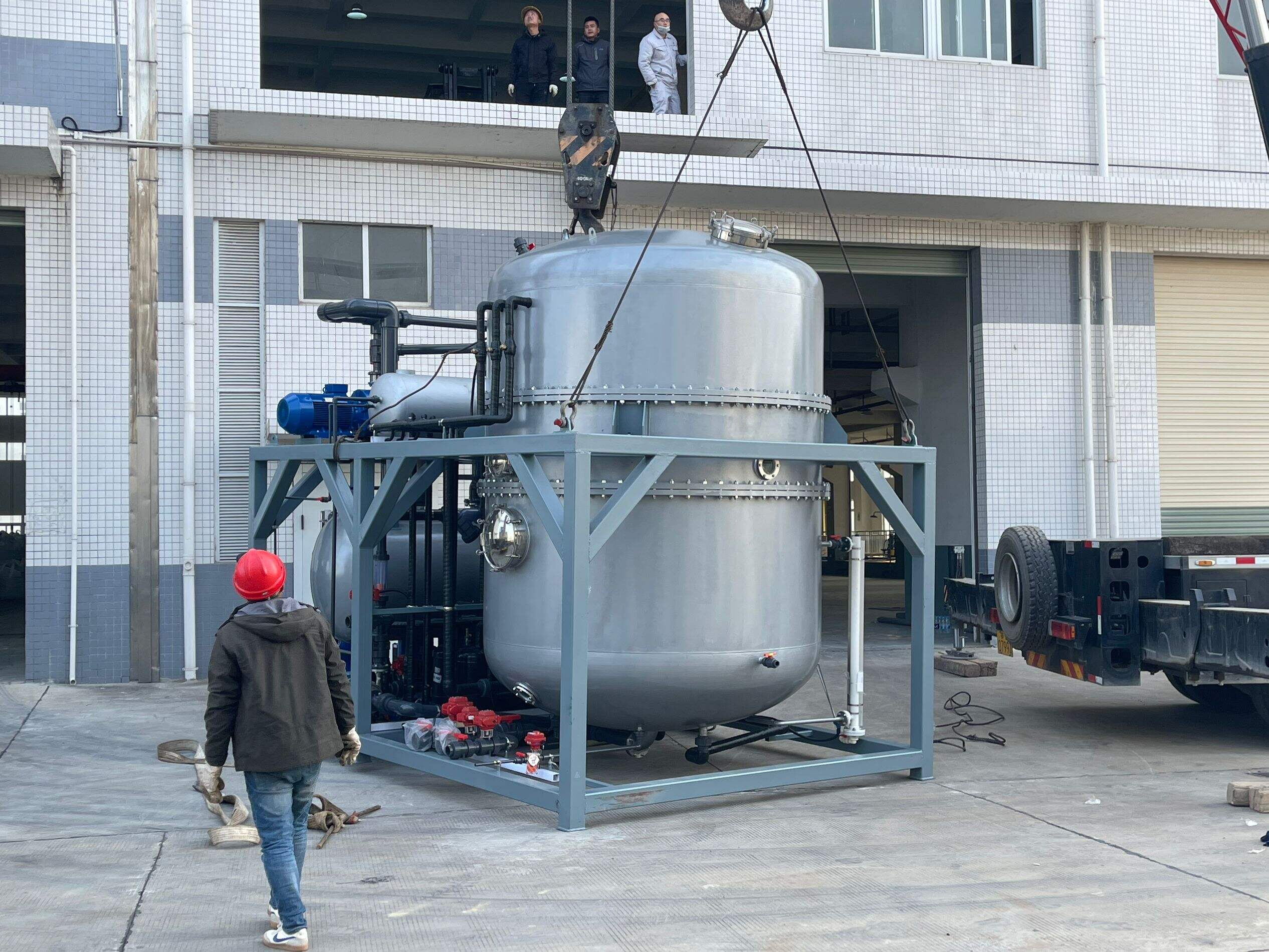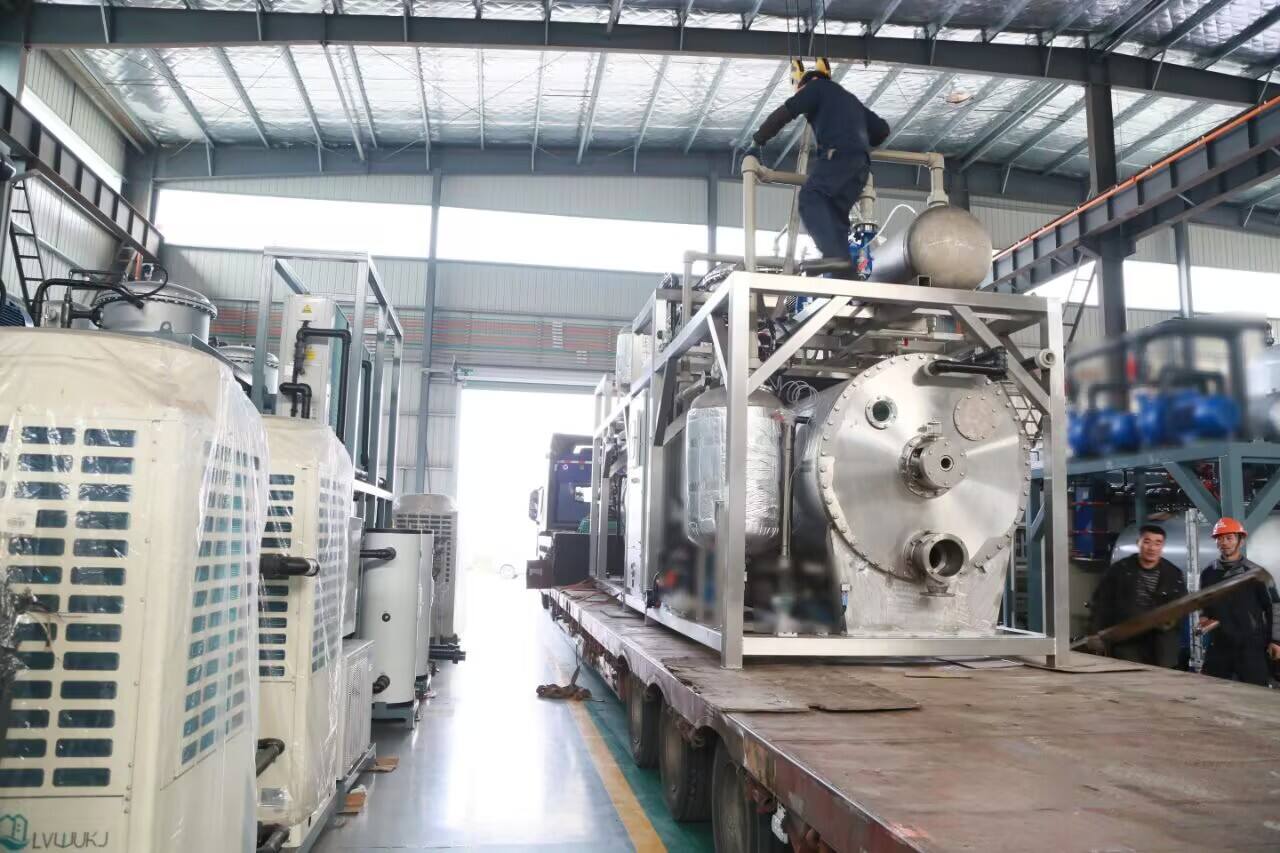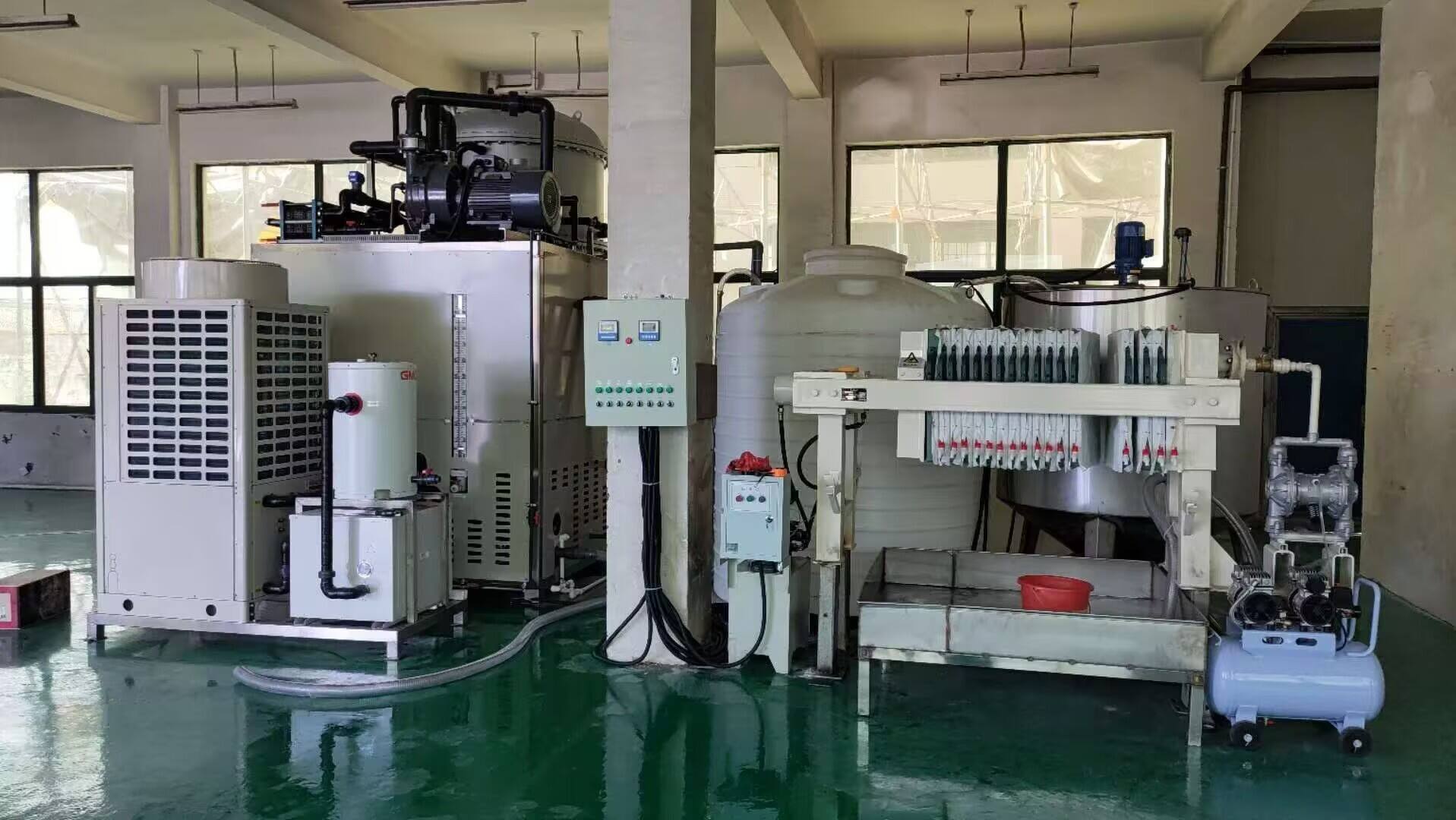ethanol vacuum distillation
Ethanol vacuum distillation is an advanced separation process that enables the efficient purification and concentration of ethanol from various mixtures. This sophisticated technique operates by reducing the pressure within the distillation system, allowing ethanol to boil at significantly lower temperatures than traditional atmospheric distillation. The process involves carefully controlled heating of the ethanol mixture in a vacuum chamber, where the reduced pressure environment facilitates the separation of ethanol from other compounds based on their different boiling points. The vapor produced is then collected and condensed in a separate chamber, resulting in highly pure ethanol. The system typically incorporates precise temperature control mechanisms, pressure monitoring devices, and advanced condensation systems to ensure optimal separation efficiency. This method is particularly valuable in industries requiring high-purity ethanol, such as pharmaceutical manufacturing, chemical processing, and biotechnology applications. The reduced operating temperature not only preserves the quality of heat-sensitive compounds but also significantly decreases energy consumption compared to conventional distillation methods. Modern ethanol vacuum distillation systems often feature automated controls, safety mechanisms, and energy recovery systems, making them both efficient and environmentally responsible choices for ethanol purification.


